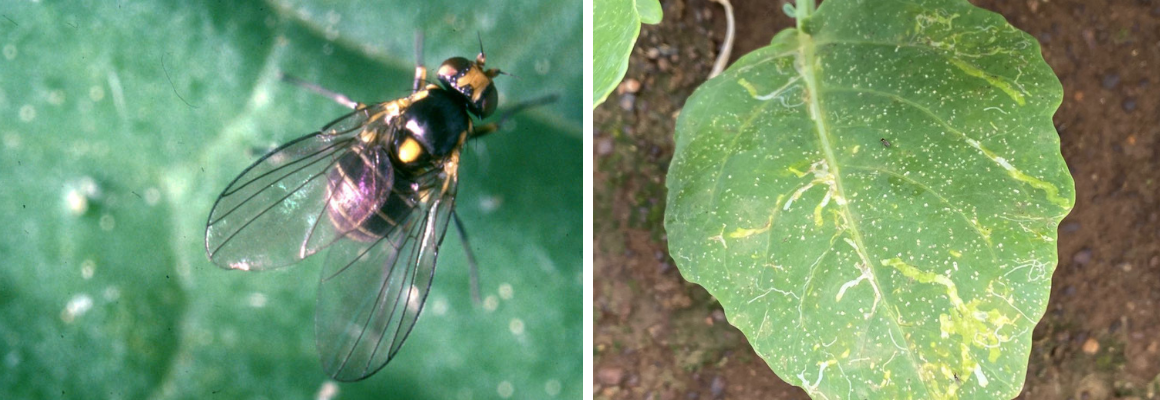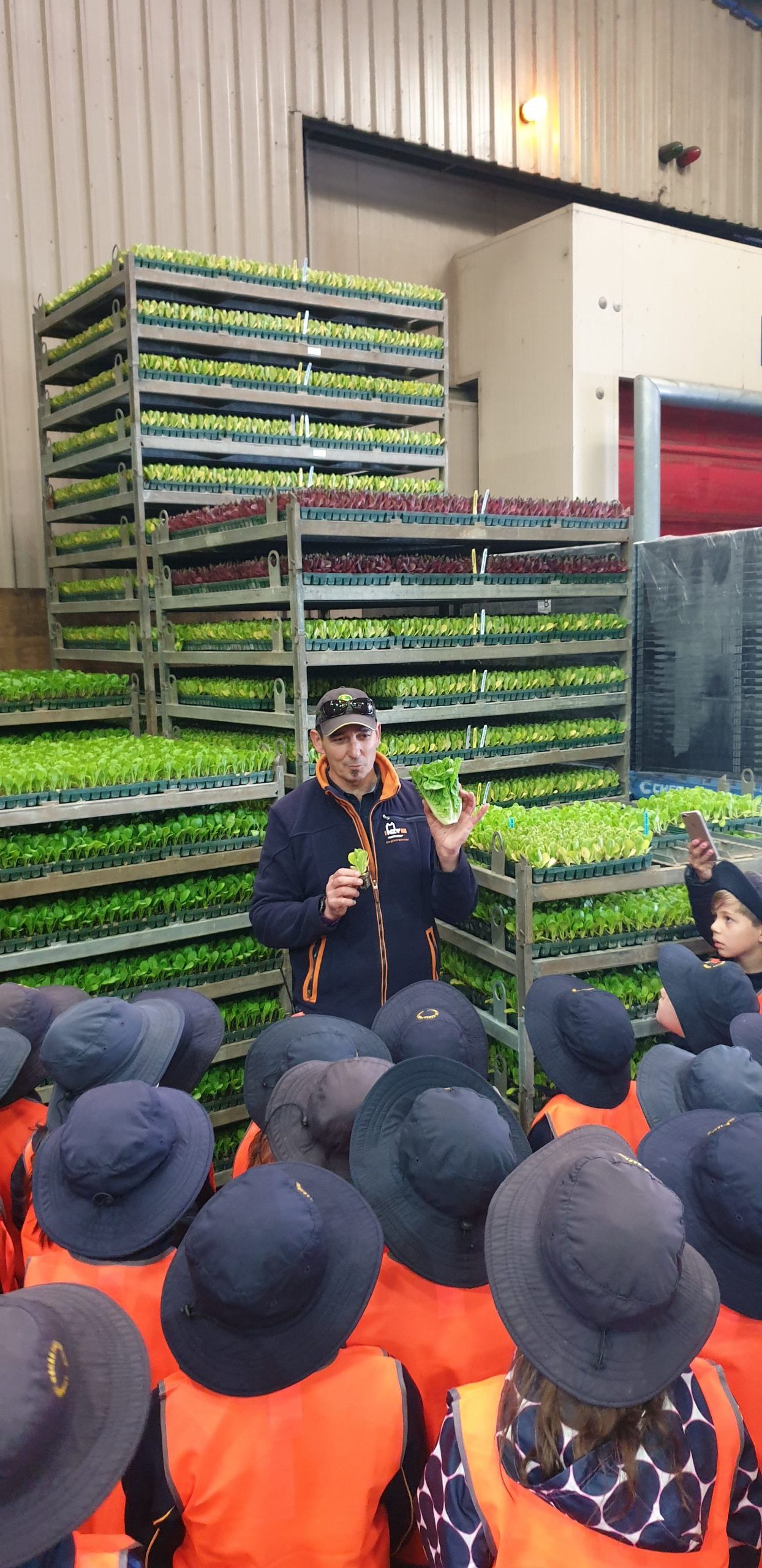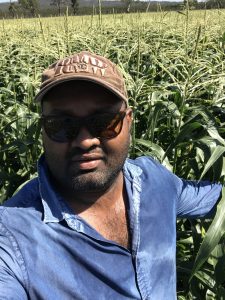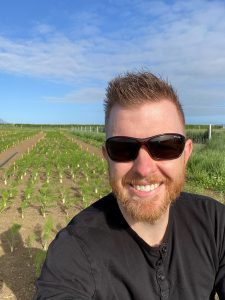
Serpentine leafminer detection in NSW and QLD
24 November 2020
Practising good environmental stewardship
30 November 2020Due to the changing levels of COVID-19 restrictions around the country, the Vegetable Crop Nutrition Masterclass made the move online in 2020. The change to online resulted in an oversubscription to the program, with vegetable growers, agronomists, and other industry representatives attending from every state in Australia for sessions held on 12 and 13 August. The highlight was the breakout sessions on day two, with six groups developing and presenting nutrient management plans.
Mastering crop nutrition
Digging into the detail of vegetable crop nutrition, the training covered the knowledge and principles necessary to develop and manage crop nutrition programs on vegetable farms.
Beginning with a deeper understanding of soil functions and underlying soil conditions, the program also outlined the importance of soil structure for vegetable crop growth. It highlighted the role organic matter plays in this, and in nutrient cycling and soil biology. Opportunities for more efficient use of crop nutrition and the role that cover crops can play in both storing and releasing nutrients were also flagged.
Leading the Vegetable Crop Nutrition Masterclass was Doris Blaesing from RM Consulting Group (RMCG).
“The presenters were impressed with participants’ overall contribution and how they tackled the nutrient management planning, given all groups had to work on a vegetable crop that was not familiar to them,” Dr Blaesing said.
“It was also great to see people from all corners of the country getting involved.”
In this edition, two Masterclass participants share what they learnt from across the two days. Vegetables Australia spoke to agronomists Bhargav Rayeni from Mulgowie Farming Company and Joel Davis-Ward from Bejo Australia about their experience.
Bhargav Rayeni
You have an agronomy/farm manager role at Mulgowie Farming Company. What does this involve?
I’m involved in season planning and agronomy. This includes working with growers to conduct crop checks, quality/yield forecasting and soil health management.
You attended the Vegetable Crop Nutrition Masterclass in 2020. What were the reasons behind your participation?
I participated in last year’s Masterclass and found it quite useful to reaffirm the approach to soil test interpretation. I was also interested to see if anything new had happened since last year’s event.
Was there anything new from last year’s event? If so, what?
I felt this time it was much better. Sap testing versus leaf testing, and phosphorous conversations.
What did you take away from the Masterclass that you can apply to your role at Mulgowie?
A holistic approach to soil test interpretation and including cover crops to nurture the soil biology.
A holistic approach involves feeding the soil rather than the plants alone, while keeping the nutrient interactions in mind. Cover crops are included as part of improving soil health and maximising nutrient availability. E.g. We are using buckwheat as a cover crop, which can make phosphorous more available to the next crop.
Were there any key learnings that you have been able to – or will be able to – pass on to the growers who you work with?
Cover cropping and soil amendments. I can discuss the importance of lime and gypsum to counter act pH and high magnesium issues, as well as outline how compost and cover crops can be used to improve soil’s nutrient/water holding capacities.
What were the highlights of the Masterclass?
Highlights included interaction with other participants and solving real-world soil testing and cropping problems.
The Masterclass helped to bring our internal agronomy onto the same page as our approach to soil test interpretation.
Do you have any suggestions for the Soil Wealth team should another Masterclass be offered in 2021? What topics would you like to see on the agenda?
I would like to see more emphasis on soil health and trace elements such as silicon. Also, a focus on pathogen and nutrient interactions.
There has been an ongoing emphasis on sustainability – it may not be a choice anymore as customers are looking to buy sustainably-grown produce.
Calcium silicates counteracting powdery mildew in an organic situation is a great example.
It will be great to see the pest and nutrient interaction, so we may be able to expand the scope of nutrition for growing and protecting the crop. Also, it reduces the dependency on chemical and cultural controls.
Joel Davis-Ward
Hi Joel, can you please give me a brief introduction of yourself and how you became involved in the vegetable industry?
I’m 32, married, and have a 10-month-old son. I became passionate about the vegetable industry in my early teens when I started cooking, which I later turned into a profession. As a professional cook, I became even more passionate about good food and starting with the best produce, so I started growing my own. I didn’t particularly like working in kitchens, and dreamed of being the one producing the ingredients I was cooking with, which led to my wife and I studying Agricultural Sciences at The University of Adelaide, moving to Tasmania (where the soil is great and the land relatively cheap), and working in agriculture while we save for our own farm.
You’re a Research Technician at Bejo Australia. What does this involve?
Bejo Australia produces a reasonably wide range of vegetable and herb seed, and we’re constantly trialing new ways to improve productivity, efficiency, safety, reliability, and quality, while reducing our environmental impact. My role is to help maintain and manage those trials – everything from planning, planting, spraying, weeding, and applying treatments to assessing the effects of those treatments and extending those results to our field officers.
You attended the Vegetable Crop Nutrition Masterclass in 2020. Why did you decide to participate? Have you been involved before?
It was recommended to me by my supervisor (who also attended) as a way to improve my agronomic knowledge in regards to crop nutrition. I hadn’t been involved in training like this before (other than at uni), so the idea was that at the very least it would be a good refresher.
What did you take away from the Masterclass? Was there anything new that you learnt?
I realised that my understanding of crop nutrition was far less than I had anticipated and that I had a lot more to learn, especially in terms of all the different products available. During the Masterclass, we worked on a case study involving carrot nutrition, which gave me a heap of information about nutrient removal rates, fertiliser timing, and nutrition management practices for a crop that I’m heavily involved in. Some of the products that were brought up in the group discussion I had never even heard of before, so I learned quite a bit!
What was the most useful information, and was there anything that you learnt that you could apply to your day-to-day work?
The most useful information for me definitely came from the group task, which was developing a crop nutrition plan for a carrot crop in Penola, South Australia. We were lucky enough to have Doris Blaesing supervising our group, and she has an enormous amount of knowledge that we only just scratched the surface of. While I can say that the discussions around calcium cyanamide, the nutrient concentration of composts, or mycorrhiza were particularly useful to me, it was actually being exposed to Doris and her work with the Soil Wealth and Integrated Crop Protection (SWICP) project that provided the most useful information that’s applicable to my day-to-day work. I’ve since downloaded and printed every SWICP report that is applicable to the crops we grow, so I ended up with a lot more relevant information than I expected!
Would you recommend the Masterclass to other members of the vegetable industry, and why?
Absolutely! There’s always something to learn from training that encourages peer-to-peer learning, no matter what your experience level is.
Would you consider undertaking any similar Masterclasses and if so, what would you like to see it focused on in terms of vegetable production?
I’m always keen to undertake more training. I’d be especially keen to learn more about soil microbiology and how to manage it; soil microscopy; developing disease-suppressive soils; factors that promote weed growth (i.e. what the present weeds tell you about the current conditions and how to manage them); and how different fertilisers and the timing of their application affects the growth, nutrient density, and health of various vegetable crops.
Find out more
Please contact Doris Blaesing at dorisb@rmcg.com.au.
The Vegetable Crop Nutrition Masterclass has been made possible by Soil Wealth and Integrated Crop Protection – Phase 2 (VG16078), delivered by RM Consulting Group and Applied Horticultural Research.
This project has been funded by Hort Innovation using the vegetable research and development levy and contributions from the Australian Government.
This article first appeared in Vegetables Australia – Summer 2020/21. To read the full publication, please click here.



